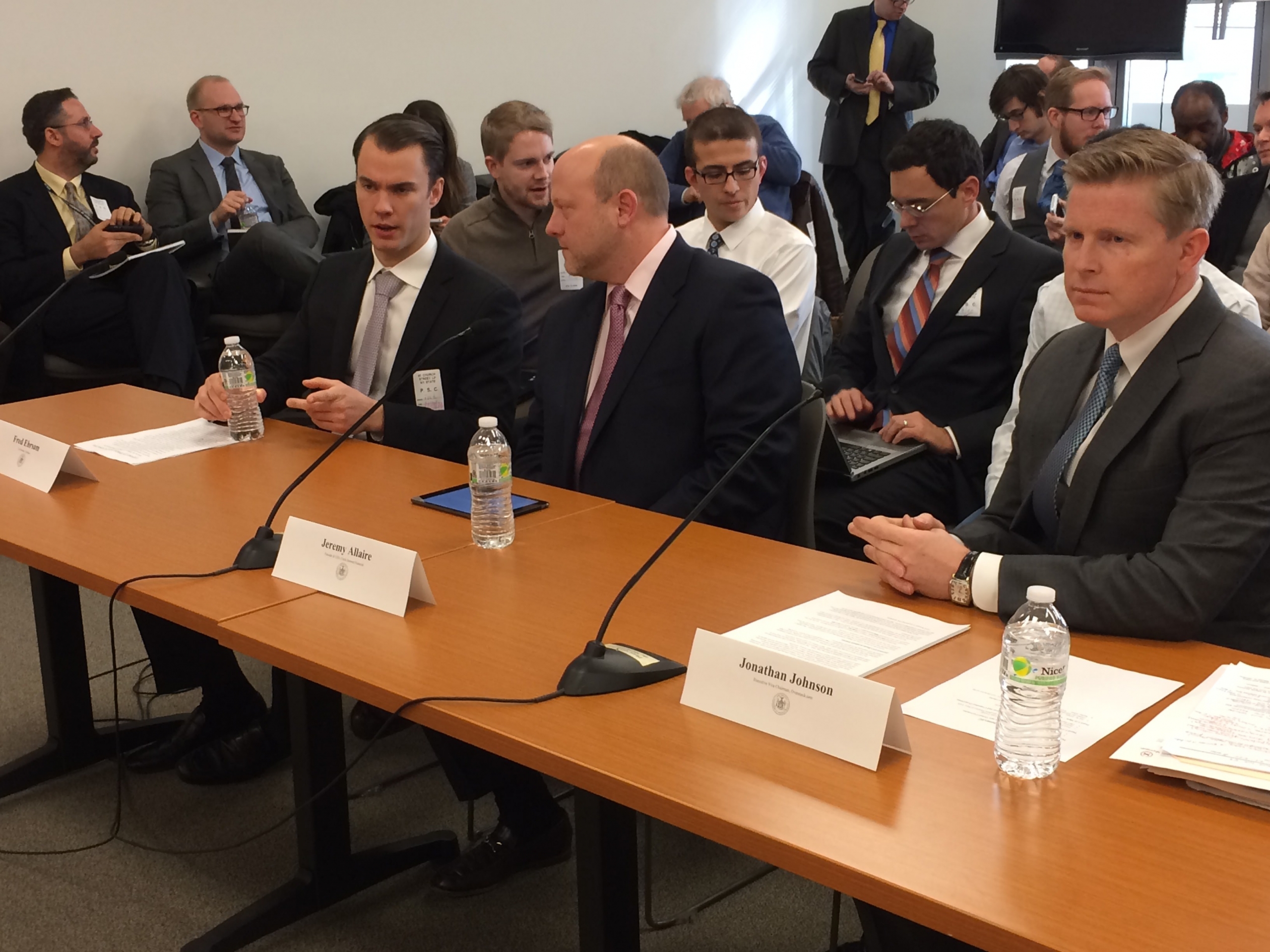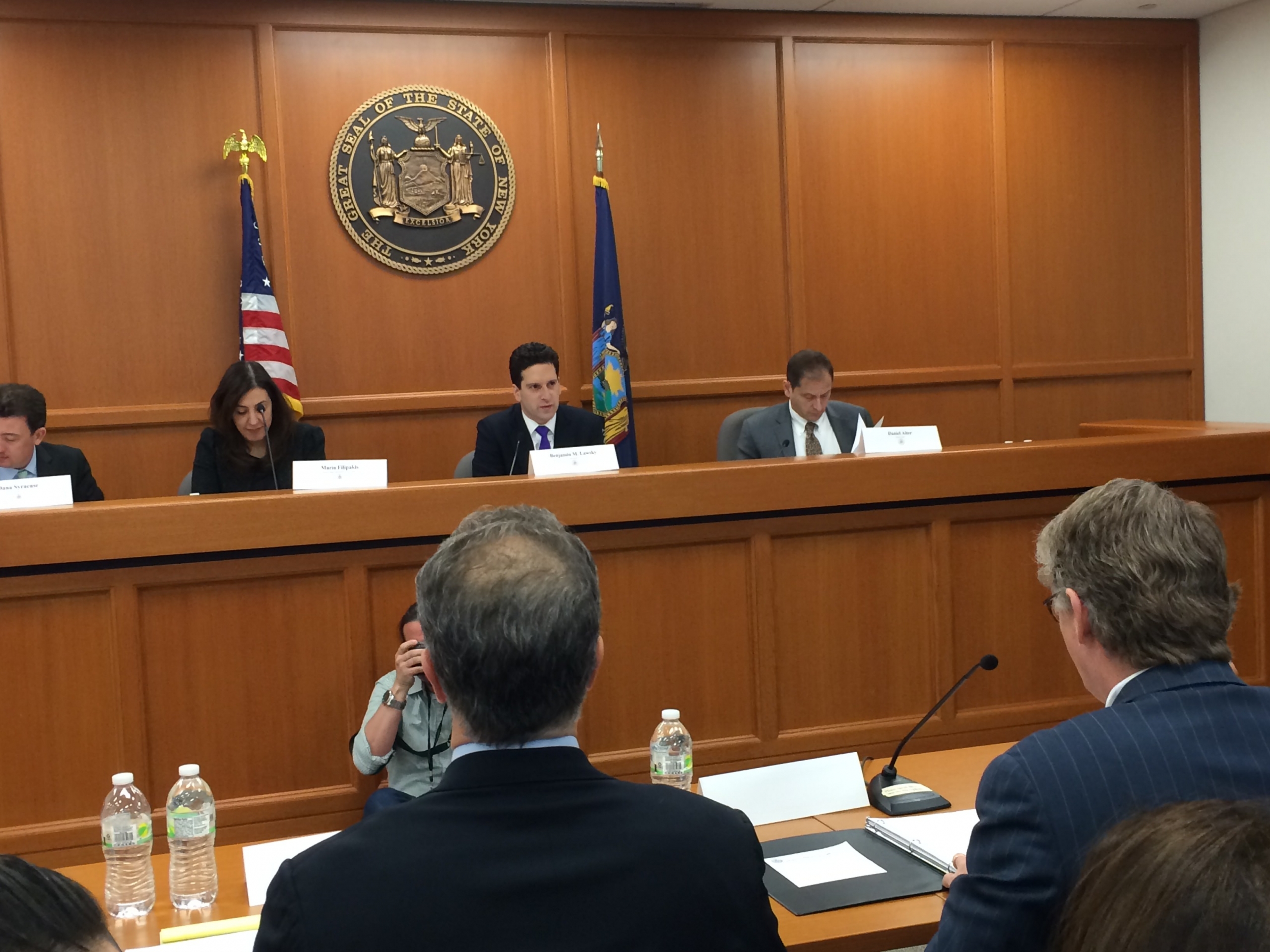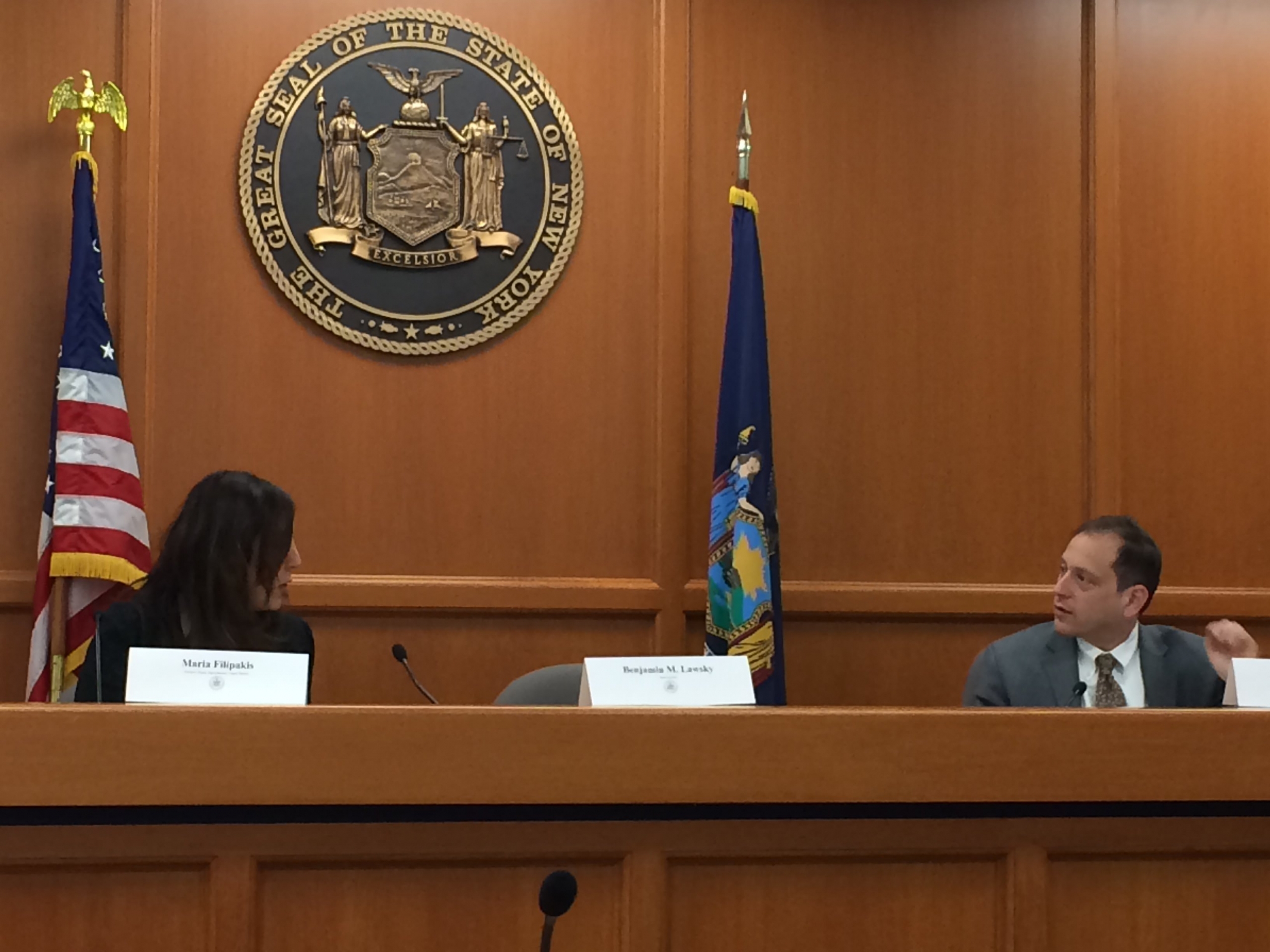
Bitcoin Hearings Day 2: Bitcoin Businesses Court Regulation in NY
If day one of the New York Department of Financial Services (NYDFS) hearings on virtual currencies was characterized by a circus-like atmosphere and initial tension from both parties, day two saw the emergence of a loose consensus of regulatory goals that could benefit the bitcoin community as well as help regulators bring stability and safety to the market.
Members of the bitcoin business community continued to express a desire for reasonable regulations, and named wallets and exchanges as the best places for initial oversight. Further, academics and regulators began to define the space as one that could benefit from increased structure and greater involvement from traditional banks.
Most notable from the day's conversation was that New York regulators seemed more open to the idea of a regulated New York-based bitcoin exchange, the jobs and opportunity such bitcoin businesses could bring to the state and the benefits these developments could provide the nascent bitcoin ecosystem.
, superintendent of financial services for the State of New York, called the prospect of a New York-based exchange a "double whammy" that could encourage onshore transactions while helping eliminate the bad actors and lax oversight that have so far plagued virtual currency businesses and law enforcement.
Jeremy Allaire, founder and CEO of Circle demonstrated his support for the idea saying that such a such a development would "provide a more mature platform" for the community and lead to the industry away from a reliance on businesses in countries with less oversight.
"Rather than the market leader for liquidity being a 14-person company in Slovenia, why not have a leading exchange in NYC?" - J Allaire— CoinDesk (@coindesk) January 29, 2014
'A hybrid system'
Despite bitcoin's potential as a system that could replace the traditional finance industry, the investment community – represented by Allaire and Fred Ehrsam, co-founder of Coinbase – offered up a more moderate short-term future for the technology. This vision was perhaps more akin to today's omnichannel commerce environment, in which like physical and online retailers, bitcoin and fiat-based financial systems coexist as competing or even complementary offerings.
Ehrsam continued, saying that in the years to come, there will "need to be a lot of coordination with the traditional financial system".
Allaire echoed these sentiments, calling the reluctance of big banks to participate in the growing economy "unfortunate". Allaire, who spoke at yesterday's Wells Fargo hearing, says the interest of major banks is evidence that a thawing between the two camps is occurring, but that the fear factor of high-profile arrests and money laundering has set back such relationships.
Speaking to CoinDesk, Allaire voiced the opinion of his fellow investors that bitcoin is moving away from fringe ideas.
'The dark side of virtual currency'

IMG_2643
The day's first panel – featuring Cyrus R. Vance, Jr, District Attorney of New York County and Richard B. Zabel, Deputy U.S. Attorney for the Southern District of New York – focused on the negatives of bitcoin, or what regulators called the "significant law enforcement challenges posed by virtual currency".
The conversation was dominated by references to identity theft, child pornography, cybercrime and litany of the evils that stemmed from the high-profile cases so far prosecuted by New York, including Liberty Reserve and Silk Road.
In contrast to yesterday's investor panel, which appealed to the state for a "safe harbor" period that would not stifle innovators with increased compliance, Vance Jr. advocated that digital currency exchangers should be required to "maintain transaction records", "obtain identifying information from customers", "implement procedures to ensure the accuracy of information" and "file periodic applications in order to do business".
Zabel and Vance Jr. also downplayed assertions by the first day's witnesses that current laws are enough.
A call for national and international coordiation
While bitcoin does pose a regulatory challenge for the State of New York, as evidenced by the day's first panel, Ehrsam and Allaire broadened the outlook of regulators to the implications bitcoin will have given its borderless and frictionless capabilities.
Calling it "one of the first major Internet, technology-driven issues that really will require collaboration on a worldwide basis", Allaire suggested the industry would benefit most from "unilateral action" that sets forth a clearly defined model for startups between states and perhaps even internationally.
Zabel's comments suggest that such an approach would also be beneficial to investigations. He noted that Liberty Reserve's operators relocated to Costa Rica to specifically go beyond the jurisdiction of authorities, and that a lack of cross-border restrictions to bitcoin transfers has enabled criminals and set back prosecutors.
Consumer protections

IMG_2635
Notably, Allaire and Ehrsam seemed more willing than their counterparts in the VC community to indicate that anti-money laundering (AML) and know your customer (KYC) rules were a necessary aspect of running a money service business, even those dealing in bitcoin. Ehrsam noted that Coinbase has spent a "disproportionate" amount of its funding on ensuring it abides by these rules, but demonstrated a willingness go above and beyond if it meant operating with less uncertainty.
Executive vice president of Overstock.com Jonathan Johnson stated that online retailers would also help ensure identity tracking and consumer safeguards.
"For our customers, no one is completely anonymous - they always provide us an address to ship to." - J Johnson http://t.co/wUZYC0oVCA— CoinDesk (@coindesk) January 29, 2014
A mainstream commerce phase
Ehrsam and Allaire agreed with statements from yesterday's panel that indicated bitcoin is coming out of its speculative phase. As evidenced, Johnson was onhand to attest to how bitcoin can be a 'managable opportunity' for mainstream retailers, even if he jokingly suggested that he doesn't exactly welcome more entrants to the space.
Johnson made the business case through a story of an interaction with his local hairdresser, who lamented the restrictions of large credit card companies.
But, if cost savings was a uniting discussion point, regulators and law enforcement officials continued to express that certain aspects of the industry, such as mining, if left without supervision, could lead to currency manipulation and consumer fraud.
stated there could be a need for regulation in this area, saying "We don't know for sure that would happen if someone were try to monopolize bitcoin's mining system".
Bitcoin-specific regulations
Law enforcement officials were firm in their assertion that virtual currencies are "quantitatively different" about virtual currencies, saying that comparisons to burner cell phones or encrypted computers were not applicable to the challenges posed by bitcoin.
Vance Jr. also moved to attack the belief that the public blockchains of some virtual currencies would benefit law enforcement agents.
Further, regulators also inquired about the possibility of whether a coin could be programmed to follow regulations implemented by the state.
Bitcoin, an academic view
If most of the day was focused on regulation for bitcoin, the gathered professors gave more attention to the hypotheticals that could disrupt bitcoin and its status as the major player in the market. Regulators inquired as to problems in the system and whether it could truly develop into a lower-cost financial services system for consumers given competition and investor demands for returns.
Athey and Felten focused on highlighting the potential of the technology and defended the value of bitcoin as well as its ability to serve as a payments system despite issues with hoarding and liquidity.
Mark T. Williams, professor at Boston University School of Management, took an opposing view, citing the currency's 9,000% growth in 2013:
While the conversation did discuss the outstanding uncertainties with bitcoin, it also added a more universal perspective on the underlying possibilities of bitcoin technology and their possible applications to better alternatives. However, academics suggested limiting the ability for such experimentation would likely be detrimental long-term.
The entirety of the New York Hearings can be viewed here.
DISCLOSURE
The leader in news and information on cryptocurrency, digital assets and the future of money, CoinDesk is a media outlet that strives for the highest journalistic standards and abides by a strict set of editorial policies. CoinDesk is an independent operating subsidiary of Digital Currency Group, which invests in cryptocurrencies and blockchain startups. As part of their compensation, certain CoinDesk employees, including editorial employees, may receive exposure to DCG equity in the form of stock appreciation rights, which vest over a multi-year period. CoinDesk journalists are not allowed to purchase stock outright in DCG.

